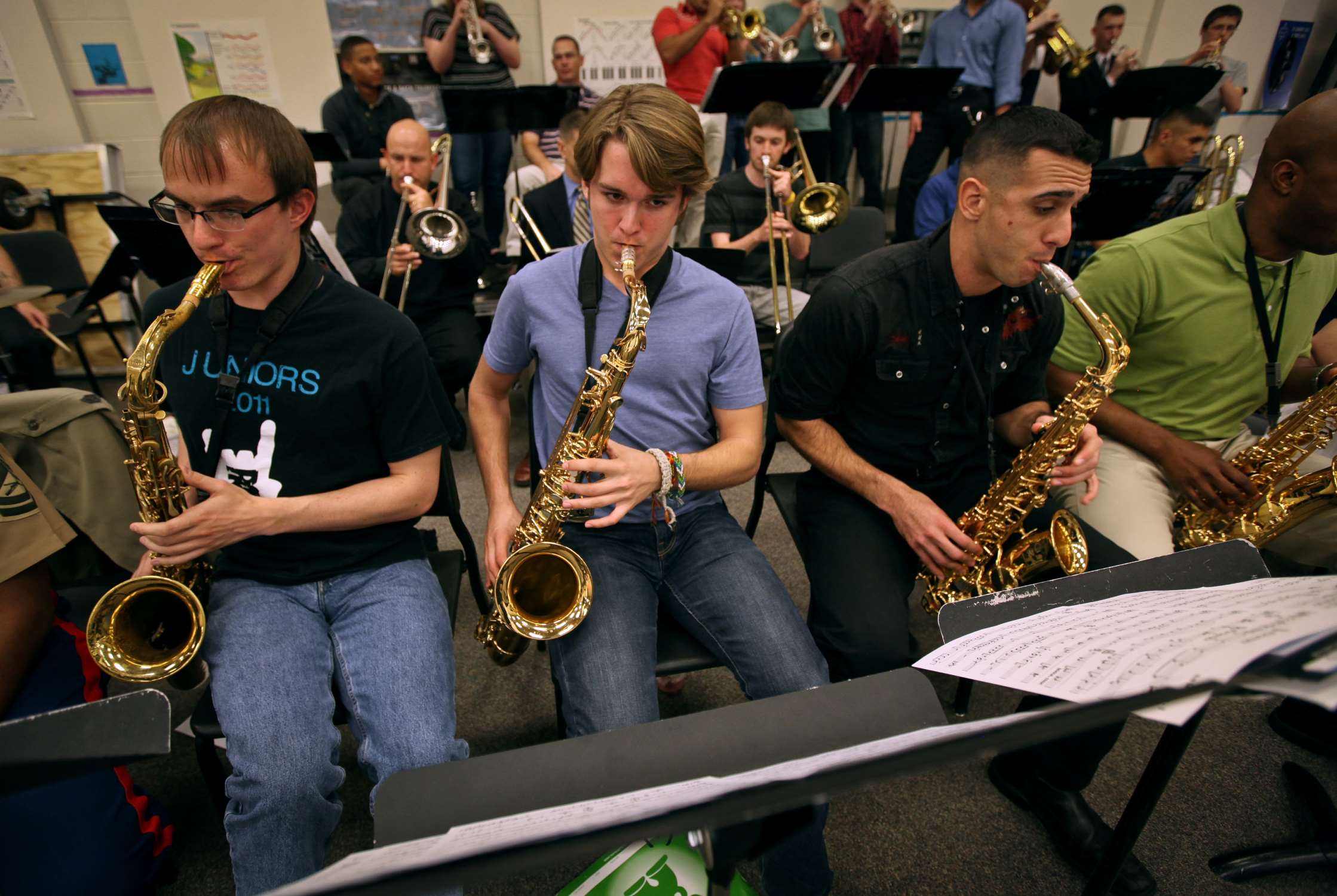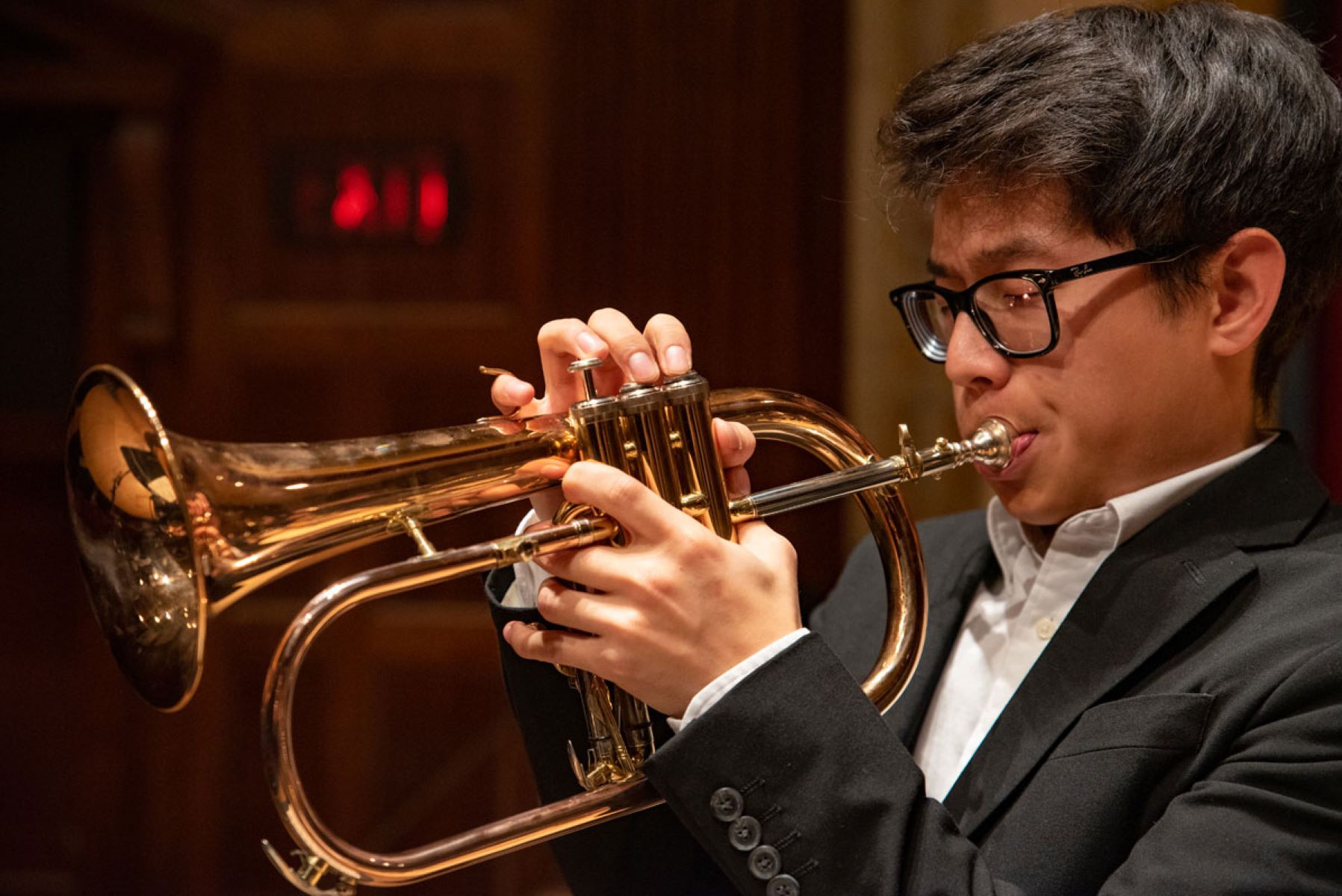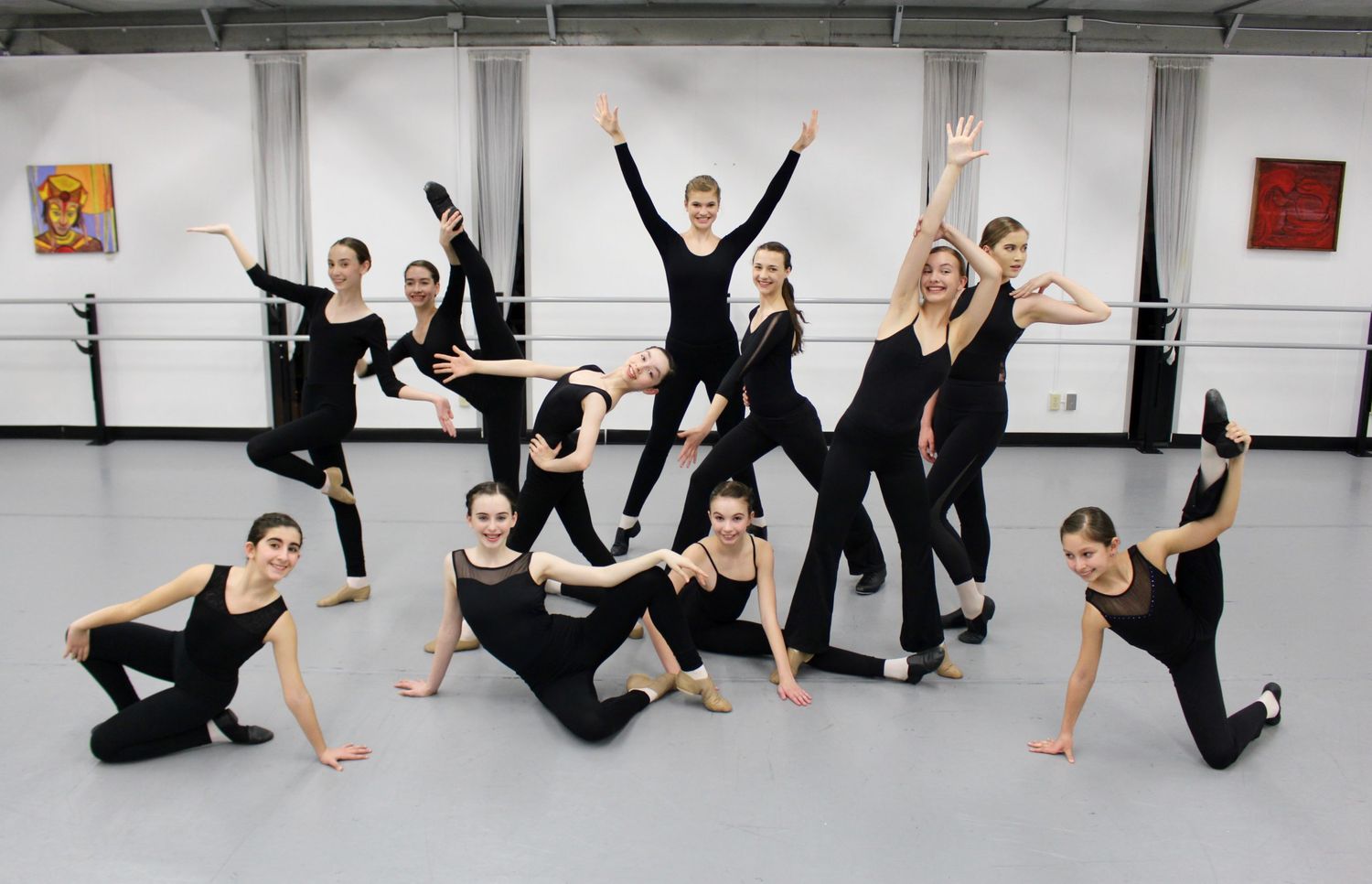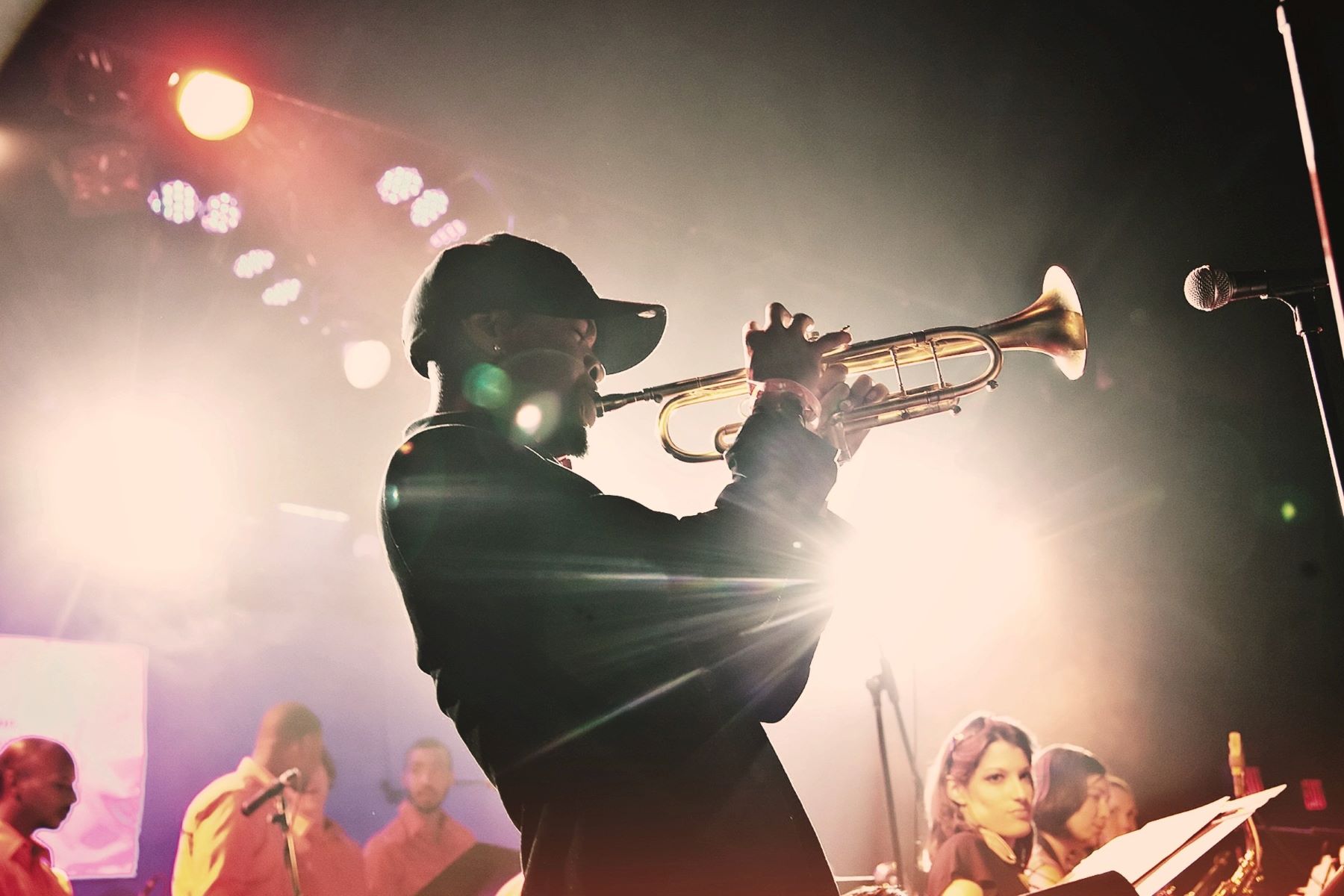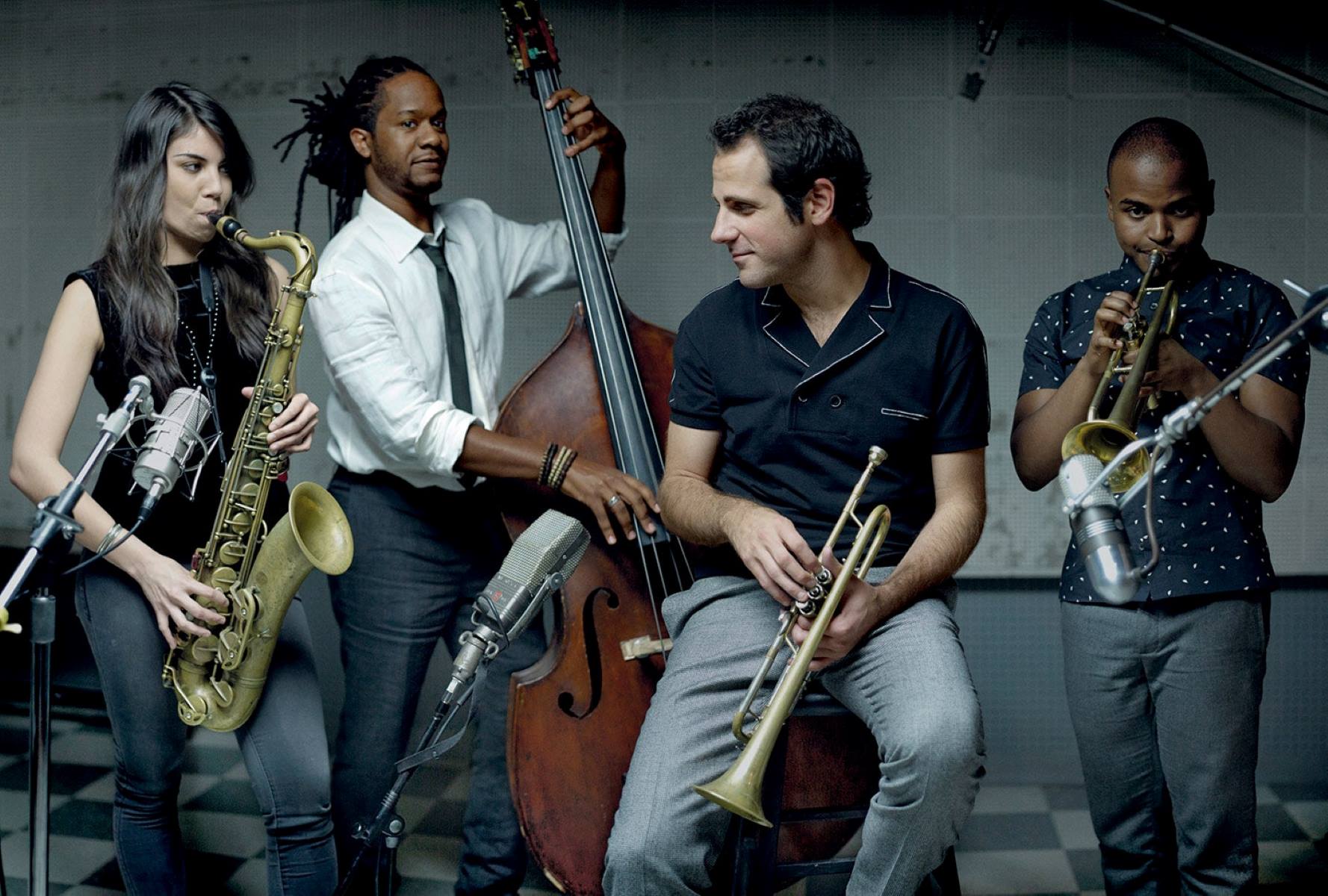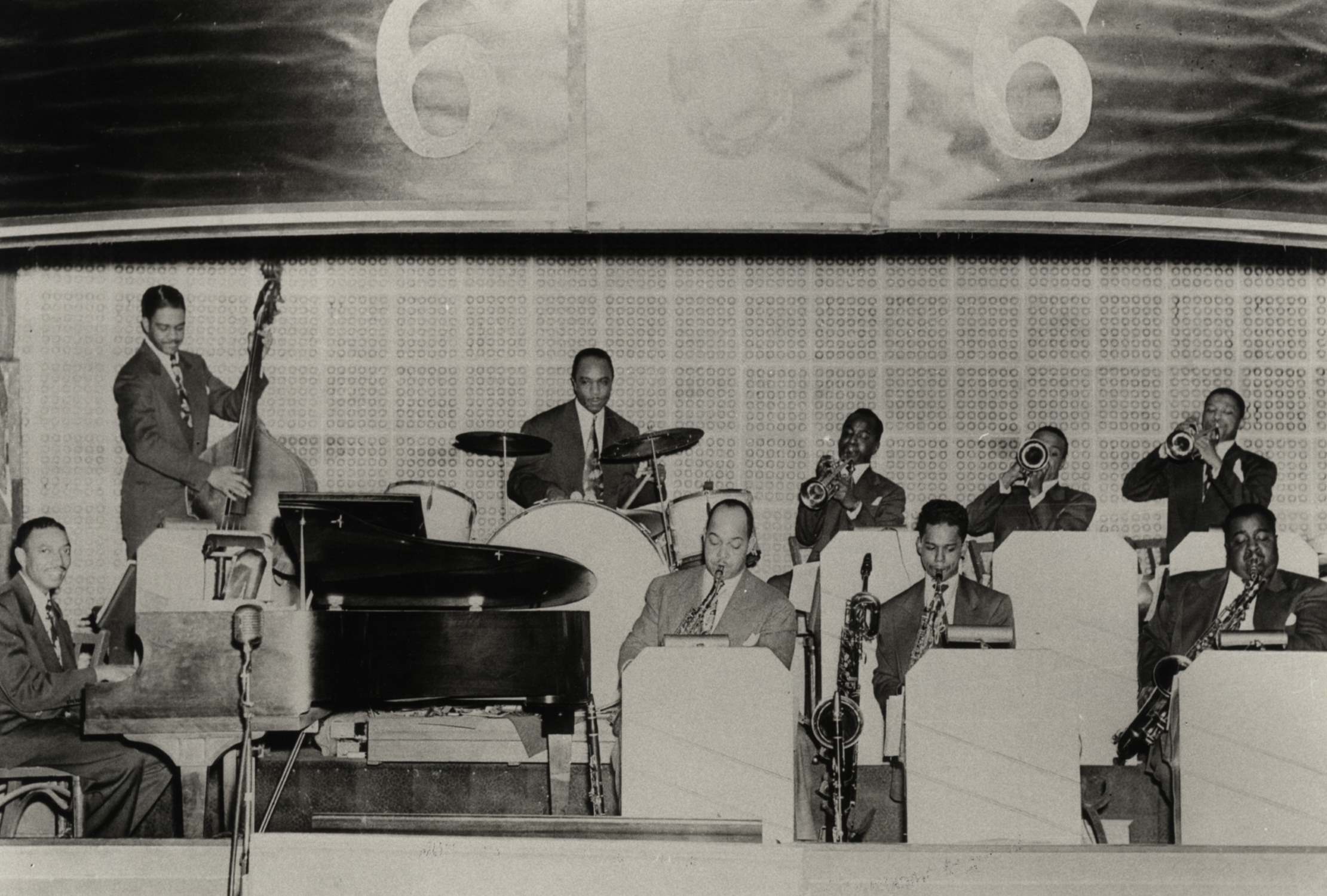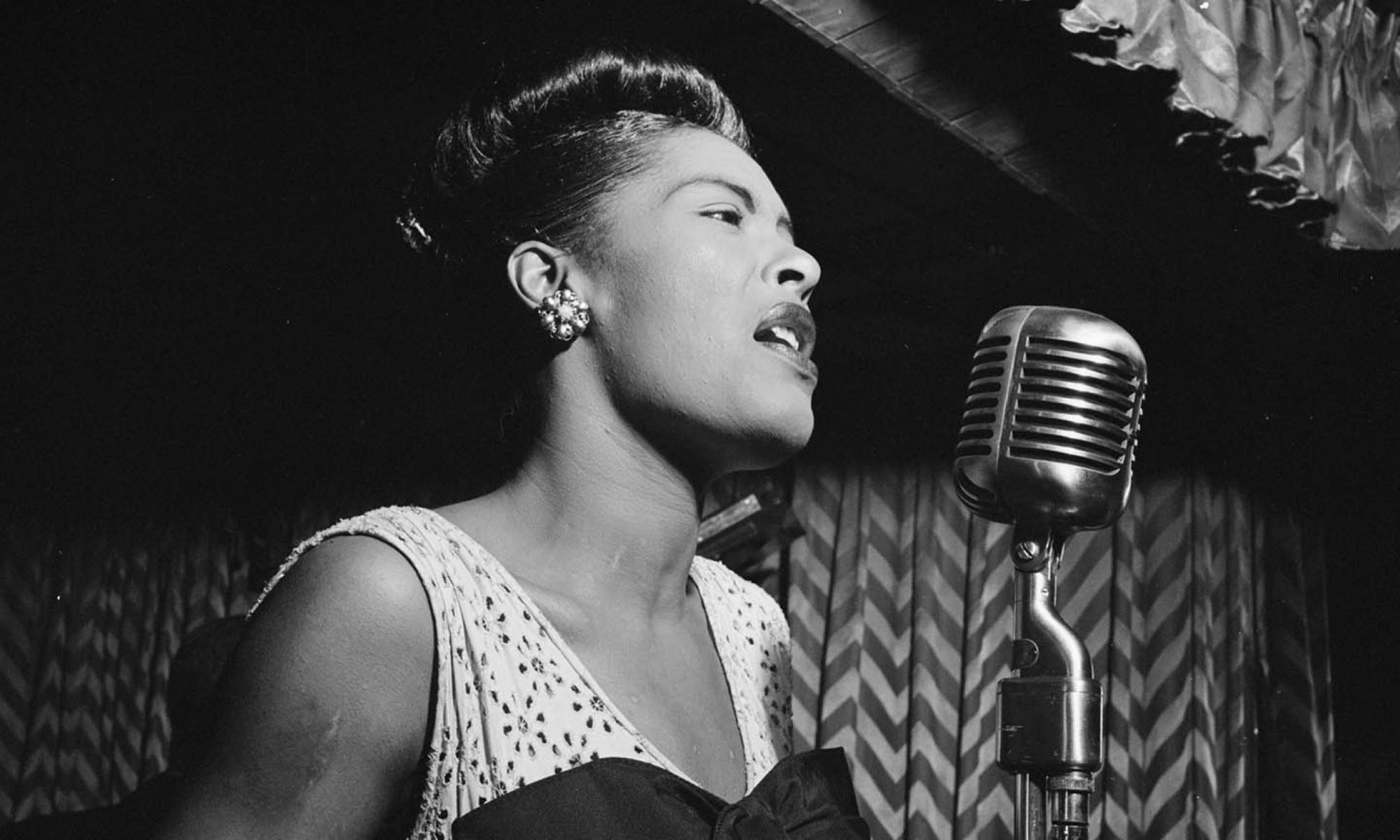

Jazz
How To Be A Jazz Singer
Modified: March 8, 2024
Learn essential techniques and tips to become a skilled Jazz singer, from mastering scatting to improvisation. Unleash your inner Jazz artist and captivate audiences with your soulful renditions.
(Many of the links in this article redirect to a specific reviewed product. Your purchase of these products through affiliate links helps to generate commission for AudioLover.com, at no extra cost. Learn more)
Table of Contents
- Introduction
- Understanding the Essence of Jazz Singing
- Developing Vocal Techniques for Jazz Singing
- Mastering Improvisation in Jazz Singing
- Studying the Great Jazz Singers
- Choosing the Right Repertoire for Jazz Singing
- Building Stage Presence as a Jazz Singer
- Collaborating with Jazz Musicians
- Recording and Releasing Your Jazz Music
- Navigating the Jazz Scene: Gigs and Festivals
- Conclusion
Introduction
Welcome to the world of jazz singing, where soulful melodies, intricate improvisations, and expressive storytelling intertwine. As an art form that originated in the early 20th century, jazz has captivated audiences with its rich history and vibrant performances. And at the heart of the jazz genre are the talented individuals known as jazz singers.
Being a jazz singer is not just about hitting the right notes and singing with technical precision. It’s about embodying the essence of the music, connecting with your audience on a deep emotional level, and fearlessly exploring the boundaries of melody and rhythm.
In this article, we will delve into the world of jazz singing and explore what it takes to become a proficient jazz vocalist. From developing vocal techniques and mastering improvisation to studying the great jazz singers and building stage presence, we will guide you through the intricacies of this mesmerizing art form.
Whether you’re a seasoned vocalist looking to explore a new genre or a beginner eager to embark on a musical journey, this guide will provide you with the tools, inspiration, and knowledge to navigate the world of jazz singing.
So grab a cup of coffee, put on some jazz tunes, and let’s dive into the fascinating realm of jazz singing!
Understanding the Essence of Jazz Singing
Jazz singing is more than just performing a set of songs. It’s about capturing the spirit and improvisational nature of jazz music. Understanding the essence of jazz singing is crucial to becoming a skilled jazz vocalist.
At its core, jazz is a genre that encourages personal expression and individual interpretation. It embraces diversity and freedom, allowing musicians to break away from rigid musical structures and explore new possibilities. Jazz singing, similarly, requires a deep understanding of the genre’s history, characteristics, and techniques.
One of the defining features of jazz singing is its emphasis on improvisation. Unlike other genres, where singers often adhere strictly to predetermined melodies and lyrics, jazz singers have the freedom to improvise and embellish the melody, rhythm, and phrasing. This requires a strong sense of musicality, a keen ear, and the ability to think on your feet.
Another essential aspect of jazz singing is the use of scat singing. This vocal technique involves using nonsensical syllables and sounds to create melodies and rhythms. Scat singing allows jazz vocalists to become instrumentalists in their own right, engaging in musical conversations and trading solos with other musicians.
Understanding jazz harmony is also crucial for jazz singers. The genre’s complex chord progressions and harmonies provide a foundation for improvisation and chordal accompaniment. Learning about chord extensions, substitutions, and voicings will enhance your ability to navigate and interpret jazz standards.
Moreover, jazz singing requires a strong sense of rhythm. Swing, syncopation, and phrasing are all key elements of the genre’s rhythmic language. Developing a solid sense of time and rhythmic accuracy will greatly enhance your ability to interact with instrumentalists and create a cohesive musical experience.
Lastly, jazz singing is deeply rooted in storytelling. Every song is an opportunity to convey emotions, tell a narrative, and connect with the audience. A successful jazz singer knows how to communicate the lyrics and evoke the intended mood, whether it’s through subtle nuances, vocal dynamics, or heartfelt interpretations.
Understanding the essence of jazz singing goes beyond technical proficiency. It requires an immersion in the genre’s history, styles, and cultural context. By embracing the improvisational spirit, mastering scat singing, delving into jazz harmony, honing your rhythmic skills, and becoming a captivating storyteller, you can truly embody the art of jazz singing.
Developing Vocal Techniques for Jazz Singing
In order to excel as a jazz singer, it is essential to develop and refine your vocal techniques. Jazz singing requires a unique set of skills that allow you to navigate the complex harmonies, improvisations, and rhythmic intricacies of the genre. Here are some key areas to focus on when developing your vocal techniques for jazz singing:
- Vocal Control and Flexibility: Jazz singing demands precise control over your voice. Develop your ability to effortlessly switch between different registers, utilize different vocal tones, and navigate the various vocal ranges required by jazz standards.
- Ear Training: Train your ear to recognize and reproduce intricate jazz melodies, harmonies, and intervals. This will help you when improvising, harmonizing with other musicians, and understanding the subtle nuances of jazz phrasing.
- Breath Control: Jazz singing often incorporates long melodic phrases and sustained notes. It is crucial to develop proper breath control techniques to support your voice and maintain consistent tone and dynamics throughout your performance.
- Articulation and Diction: Clear articulation and diction are essential in jazz singing, as it allows the audience to understand and connect with the lyrics. Practice enunciating each word distinctively while maintaining a relaxed and natural delivery.
- Phrasing and Dynamics: Jazz singing is characterized by its rhythmic and melodic flexibility. Explore different phrasing techniques, such as syncopation and swing, and experiment with variations in volume and intensity to add depth and expression to your performances.
- Register Transitions: Jazz singing often requires seamless transitions between different vocal registers. Practice vocal exercises and scales to develop smooth transitions between your chest voice, head voice, and mix voice, allowing for greater versatility in your jazz singing repertoire.
- Controlled Vibrato: Vibrato adds warmth and richness to jazz vocals when used intentionally and in moderation. Work on developing a controlled and consistent vibrato that complements your singing style and enhances the emotional impact of your performances.
- Pitch Accuracy: Train your pitch accuracy through scales, interval training, and ear training exercises. Being able to hit the right notes with precision is crucial in jazz singing, particularly when improvising and navigating complex harmonies.
Remember, developing your vocal techniques for jazz singing is an ongoing process. Regular practice, vocal exercises, and working with a vocal coach or teacher specialized in jazz singing can greatly contribute to your growth as a jazz vocalist. Embrace the unique qualities of your voice, and allow yourself to explore and experiment with different techniques to find your personal style within the rich tapestry of jazz music.
Mastering Improvisation in Jazz Singing
Improvisation is at the heart of jazz music, and mastering this skill is essential for any jazz singer aiming to fully express themselves within the genre. Improvising in jazz singing allows you to add your own unique flavor, spontaneity, and creativity to a song, transforming it into a dynamic and personal performance. Here are some strategies to help you master improvisation in jazz singing:
- Develop your musical vocabulary: Familiarize yourself with jazz standards and explore the melodic and rhythmic patterns commonly used in improvisation. Transcribe and analyze solos of renowned jazz vocalists and instrumentalists to expand your musical vocabulary.
- Practice scales and arpeggios: Mastery of scales and arpeggios is crucial for improvisation. Practice different scales and arpeggios, both major and minor, in various keys, and work on incorporating them seamlessly into your improvisations.
- Experiment with melodic variations: Explore different ways to alter the melody while maintaining its essence. Experiment with rhythm, pitch, phrasing, and ornamentation to create unique melodic variations within the framework of the song.
- Embrace scat singing: Scat singing is a powerful tool for jazz singers to improvise vocally. Experiment with nonsensical syllables, vocal sounds, and rhythmic patterns to create melodic lines and interact with other musicians in real-time.
- Listen and respond: Improvisation is a conversation between musicians. Develop the ability to actively listen to the accompaniment and respond in the moment. Pay attention to the harmonic progression, rhythm, and dynamics, and use them as a guide to shape your improvisation.
- Build your confidence: Overcoming the fear of making mistakes is crucial in improvisation. Embrace the spontaneity and fluid nature of jazz singing, and trust in your musical instincts. The more you practice and perform improvisation, the more confident and comfortable you will become.
- Collaborate with other musicians: Engaging in musical collaborations and jam sessions with instrumentalists and fellow jazz singers is a valuable way to develop improvisational skills. Interacting and responding to the ideas of other musicians can inspire new approaches and improve your improvisation abilities.
- Record and analyze your improvisations: Record your practice sessions and performances to review and analyze your improvisations. Take note of what works well and areas for improvement. This self-reflection will help you refine your improvisational skills over time.
Remember, improvisation is about telling a story and expressing your unique musical voice. Embrace the fluidity and spontaneity of jazz singing, and let your creativity flow. With practice, patience, and an adventurous spirit, you can master the art of improvisation and create captivating and memorable jazz performances.
Studying the Great Jazz Singers
One of the most effective ways to improve as a jazz singer is to study and draw inspiration from the greats who have paved the way in this genre. The rich history of jazz singing is filled with iconic voices that have left an indelible mark on the art form. By immersing yourself in the recordings and performances of these influential jazz singers, you can gain valuable insights and techniques to enhance your own singing. Here are some key reasons why studying the great jazz singers is essential:
- Style and Interpretation: Each jazz singer has a unique style and interpretation that sets them apart. By listening to a diverse range of jazz vocalists, you can explore different approaches to phrasing, timing, dynamics, and expression. Pay attention to their use of vibrato, vocal inflections, and melodic choices, and adapt and incorporate these elements into your own singing.
- Artistry and Musicality: Great jazz singers possess exceptional musicality and artistry. Analyze their use of improvisation, scat singing, and interaction with instrumentalists. Observe how they navigate complex harmonies and deliver emotionally powerful performances. Study their choices in rhythm, pitch, and dynamics to develop a deeper understanding of musical expression.
- Lyric Interpretation: Jazz singing is about storytelling, and the great jazz singers masterfully interpret lyrics to convey emotion and meaning. Study how they emphasize certain words or phrases, use vocal nuances to convey subtle emotions, and craft their performances to connect with the audience on a deeper level.
- Stage Presence and Performance: Jazz singers captivate their audience not only with their voices but also with their stage presence. Observe their posture, body language, gestures, and interaction with the band and audience. Learn from their ability to engage the audience and create a captivating performance that goes beyond just singing.
- Understanding the Jazz Tradition: By studying the great jazz singers, you gain a deeper understanding of the jazz tradition. Discover the historical context in which they emerged and the impact they had on shaping the genre. This knowledge will enrich your appreciation of jazz music and allow you to become part of the ongoing continuum of jazz singers.
Immerse yourself in the recordings of jazz singing legends such as Ella Fitzgerald, Billie Holiday, Sarah Vaughan, Nat King Cole, and Louis Armstrong, among many others. Study their live performances, watch documentaries, and read biographies to gain a comprehensive understanding of their contributions to jazz singing.
Remember, while studying the great jazz singers is important, it is equally vital to develop your own unique voice and style. Use their techniques and approaches as a foundation for your own creativity and self-expression. By studying and incorporating the lessons of the great jazz singers, you can cultivate a deep appreciation for the art form and continue to evolve as a jazz vocalist.
Choosing the Right Repertoire for Jazz Singing
Choosing the right repertoire is a crucial step in developing your identity as a jazz singer. The songs you select not only showcase your vocal abilities but also reflect your artistic sensibilities and showcase your understanding of the jazz genre. Here are some key considerations to keep in mind when choosing the right repertoire for jazz singing:
- Explore the Great American Songbook: The Great American Songbook is a treasure trove of jazz standards. These timeless compositions by renowned songwriters such as George Gershwin, Cole Porter, and Irving Berlin have become an integral part of the jazz repertoire. Dive into this vast collection of songs and familiarize yourself with the classics that have defined the genre.
- Consider Your Vocal Range and Style: Choose songs that complement your vocal range and suit your unique voice. Consider the key, melody, and range of each song to ensure that it highlights your strengths as a singer. Pay attention to the style of jazz that resonates with you, whether it’s swing, bebop, Latin jazz, or something else, and select songs that align with that style.
- Experiment with Lesser-Known Songs: While the Great American Songbook offers numerous recognizable songs, don’t be afraid to explore lesser-known gems. Unearthing hidden treasures allows you to bring your own interpretation and personal touch to the songs, making them uniquely yours.
- Incorporate Variety: Aim for a diverse repertoire that showcases different styles, moods, and tempos. Include upbeat and energetic tunes as well as soulful ballads. This variety adds depth and keeps your performances engaging and dynamic.
- Balance Familiarity and Originality: While it’s important to include well-known jazz standards in your repertoire, strive to bring your own interpretation and originality to these songs. Add personal flair through vocal improvisation, unique phrasing, and unexpected rhythmic choices to make them stand out.
- Customize the Arrangements: Experiment with different arrangements to make the songs your own. Collaborate with musicians to create fresh interpretations, incorporating elements from various jazz sub-genres or blending jazz with other influences such as blues or Latin music.
- Consider Audience Engagement: While selecting songs that resonate with you is important, also consider your audience. Choose songs that have widespread appeal and can connect with a diverse audience, allowing them to appreciate and enjoy your performances.
- Continuously Expand Your Repertoire: Jazz is a vast and ever-evolving genre, so make a habit of continuously expanding your repertoire. Discover new songs, explore different eras of jazz, and incorporate contemporary jazz compositions to keep your performances fresh and relevant.
Remember, selecting the right repertoire is a personal journey. Embrace the songs that speak to you, challenge yourself with new material, and have fun exploring the diverse world of jazz music. By choosing the right repertoire, you create a solid foundation for your jazz singing career and showcase your unique artistry to captivate audiences.
Building Stage Presence as a Jazz Singer
Building stage presence is a vital aspect of being a successful jazz singer. It goes beyond just singing the right notes and lyrics; it’s about captivating your audience, connecting with them on an emotional level, and creating a memorable and engaging performance. Here are some key strategies to help you build stage presence as a jazz singer:
- Confidence: Confidence is the foundation of a powerful stage presence. Believe in your abilities, connect with the music, and project that confidence to the audience. Embrace the spotlight and command the stage with a presence that captivates and engages.
- Stage Movement: Consider your physicality on stage. Move with purpose and use your body language to enhance the emotional impact of the song. Avoid excessive movement that detracts from the performance, but don’t be afraid to convey the passion and energy of the music through subtle gestures and expressions.
- Eye Contact: Establish eye contact with your audience. Engage with individuals in the crowd, allowing them to feel a personal connection to your performance. Eye contact creates a sense of intimacy and draws the audience into your musical world.
- Interact with Band Members: Jazz is a collaborative art form. Interact with your band members on stage, exchanging musical cues, and responding to their solos. This interaction enhances the overall performance and demonstrates your ability to connect with other musicians in a live setting.
- Storytelling: Jazz singing is not just about hitting the right notes; it’s about conveying emotions and telling a story. Take the time to understand the lyrics of each song and convey their meaning through your gestures, facial expressions, and vocal delivery. Engage the audience in the narrative of the music and evoke a range of emotions.
- Dynamic Contrast: Utilize dynamic contrast to create moments of tension and release, drawing your audience in and keeping them engaged. Explore soft, intimate sections, and build up to powerful, climactic moments in your performance. Showcasing a range of dynamics adds depth and excitement to your stage presence.
- Authenticity: Be true to yourself and your artistry. Develop your own unique style and embrace your individuality on stage. Audiences appreciate genuine performers who are not afraid to express their true selves through their music.
- Stage Etiquette: Practice proper stage etiquette and professionalism. Respectfully communicate with the band, maintain a positive attitude, and be punctual for rehearsals and performances. This professionalism enhances your overall stage presence and fosters a collaborative atmosphere.
Building stage presence is an ongoing process that improves with experience and self-awareness. Observe and learn from experienced jazz singers, attend live performances, and actively seek feedback to refine your on-stage presence. As you continue to develop and grow as a jazz singer, your stage presence will become a powerful tool for connecting with your audience and leaving a lasting impression.
Collaborating with Jazz Musicians
Collaboration with jazz musicians is an essential component of being a jazz singer. Jazz is a highly interactive and improvisational genre that thrives on the synergy between musicians. Collaborating effectively with jazz musicians not only enhances your overall performance but also allows for creative exploration and musical growth. Here are some key strategies for successful collaboration with jazz musicians:
- Active Listening: Actively listen to the other musicians in the ensemble. Pay attention to their musical ideas, dynamics, and interactions. Listening and responding to each other’s playing allows for seamless musical conversations and creates a cohesive performance.
- Communicate Musically: Jazz is a language, and as a jazz singer, you are part of the musical conversation. Use your voice as an instrument to communicate and engage with the other musicians. Respond to their solos, complement their phrasing and rhythm, and build upon their ideas with your own improvisations.
- Respect and Appreciation: Show respect and appreciation for the musical skills of your fellow musicians. Recognize and value their contributions to the ensemble. Cultivate a positive and supportive environment that encourages creativity and allows everyone to shine.
- Collaborative Arrangements and Interpretations: Collaborate with the band in arranging and interpreting songs. Discuss ideas, experiment with different approaches, and allow for input from each musician. This shared process of arranging and interpreting enhances the musicality of the performance and encourages a sense of ownership among all collaborators.
- Understanding Roles: Understand and respect the roles of each musician in the ensemble. Recognize the strengths and specialties of your fellow musicians and create space for them to shine during solos or featured sections. Balancing individual expression with cohesive ensemble playing creates a well-rounded and dynamic performance.
- Rehearsal Preparation: Come prepared to rehearsals with a clear understanding of the repertoire, melodies, and arrangements. Familiarize yourself with the nuances of each song and be open to suggestions and feedback. This preparation allows for smoother rehearsals and effective collaboration.
- Flexibility and Adaptability: Jazz is spontaneous and ever-evolving. Be flexible and adaptable during performances, responding to changes in dynamics, tempos, and improvisations. Embrace the unexpected and trust in the musical instincts of your collaborators.
- Continual Learning: Jazz is a lifelong journey of learning and growth. Stay curious and continue expanding your musical knowledge and skills. Attend workshops, masterclasses, and jam sessions to interact with other musicians and gain new perspectives.
Remember, collaboration is a two-way street. Just as you seek to collaborate effectively with jazz musicians, be open to their ideas and feedback. Embrace the collective creativity and exploratory nature of jazz music, and together, you and your fellow musicians can create magical and memorable performances.
Recording and Releasing Your Jazz Music
Recording and releasing your jazz music is a crucial step towards sharing your artistry with a wider audience and establishing yourself as a professional jazz singer. A well-executed recording captures the essence of your performances and allows you to showcase your unique style and talent. Here are some key considerations to keep in mind when recording and releasing your jazz music:
- Choose a Professional Recording Studio: Select a reputable recording studio with experience in jazz music. Seek out engineers who understand the nuances of capturing live instrumentation, vocals, and improvisation. A professional recording environment ensures the highest quality sound production.
- Prepare Your Material: Practice and refine your repertoire before entering the studio. Familiarize yourself with the songs, arrangements, and any planned improvisations. This preparation ensures that you can confidently deliver your best performances during the recording sessions.
- Collaborate with Skilled Musicians: Surround yourself with skilled jazz musicians who are experienced in the recording process. A cohesive and talented ensemble enhances the overall sound and musicality of the recording.
- Consider the Recording Format: Choose the recording format that best suits your artistic vision. Whether it’s a live recording, a studio album, or a combination of both, each format has unique advantages and considerations. Discuss with your producer or engineer to determine the best approach for your music.
- Capture the Live Energy: Jazz thrives on the energy of live performances. If recording in a studio, strive to recreate the spontaneous and dynamic nature of a live show. Encourage musical interactions and improvisations among the musicians to capture that live energy on the recording.
- Take Advantage of Multiple Takes: Don’t be afraid to do multiple takes of a song to achieve the desired sound and performance. Use the opportunity to experiment with different interpretations, dynamics, and improvisations. The editing process can then capture the best moments from each take to create a cohesive final product.
- Mixing and Mastering: Find an experienced mixing engineer who understands jazz music and can balance the various elements of your recording, including vocals, instruments, and effects. The mastering stage is also critical to ensure proper volume levels, clarity, and overall tonal balance.
- Create a Marketing Plan: Once your recording is complete, develop a strategic marketing plan to promote your jazz music. Utilize social media, music streaming platforms, and traditional media outlets to reach your target audience. Consider working with a publicist or music marketing professional to maximize your exposure.
- Physical and Digital Distribution: Determine how you want to distribute and sell your music. Explore options for physical CDs, vinyl records, and digital distribution platforms. Consider partnering with jazz labels, independent distributors, or self-releasing through online platforms, depending on your goals and resources.
- Engage with Your Audience: Once your music is released, engage with your audience through live performances, social media, and online interactions. Build a fanbase by connecting with jazz enthusiasts, fellow musicians, and industry professionals. Be responsive to feedback and continue cultivating relationships with your listeners.
Remember, recording and releasing your jazz music is a significant milestone in your musical journey. By carefully considering the recording process, marketing strategy, and distribution options, you can effectively share your talent, passion, and unique voice with the world.
Navigating the Jazz Scene: Gigs and Festivals
Navigating the jazz scene, which is vibrant and diverse, is an important aspect of establishing yourself as a jazz singer. Gaining exposure through gigs and festivals not only provides valuable performance opportunities but also allows you to connect with fellow musicians and build a supportive network within the jazz community. Here are some key strategies to help you navigate the jazz scene:
- Research and Networking: Familiarize yourself with local jazz venues, festivals, and organizations in your area. Attend jazz performances and engage in conversations with musicians, venue owners, and event organizers. Build relationships and connections within the jazz community by actively participating and contributing to the scene.
- Showcase Your Talent: Prepare a standout audition repertoire that showcases your vocal abilities, improvisational skills, and understanding of jazz standards. Submit your recordings and press kit to venues, festivals, and talent agents to increase your chances of securing performance opportunities.
- Start Small: Begin by securing gigs at smaller venues, open mic nights, or jam sessions. These opportunities allow you to gain experience, build confidence, and fine-tune your stage presence. As you develop your skills and reputation, you can gradually progress to larger and more prestigious gigs and festivals.
- Collaborate with Local Musicians: Collaborating with local jazz musicians is an excellent way to gain exposure and expand your network. Attend jam sessions and open mic nights to meet and connect with instrumentalists who can accompany you during gigs. Cultivating musical relationships and collaborating on projects can enhance your visibility within the jazz scene.
- Participate in Jazz Competitions: Enter local and national jazz competitions to showcase your talent and gain recognition. Competitions offer exposure to industry professionals, potential gigs, and networking opportunities. Even if you don’t win, participation can bring valuable feedback and constructive criticism to help you grow as a jazz singer.
- Attend Jazz Festivals and Workshops: Jazz festivals and workshops are excellent platforms to connect with fellow musicians, learn from renowned jazz artists, and showcase your talent. Participate in workshops, masterclasses, and jam sessions to further hone your skills and immerse yourself in the jazz community.
- Cultivate an Online Presence: In today’s digital age, having an online presence is essential for visibility and reaching a wider audience. Create a website or a professional social media presence to showcase your music, performances, and upcoming gigs. Utilize online platforms to engage with fans, share updates, and promote your upcoming shows.
- Collaborate with Event Organizers: Reach out to event organizers and offer your services for jazz-themed events, fundraisers, and community gatherings. Collaborating with event organizers can not only lead to performance opportunities but also expand your network and introduce you to new audiences.
- Stay Persistent and Resilient: Navigating the jazz scene requires persistence and resilience. The journey may have its ups and downs, but stay committed to your craft and continue seeking new opportunities. Embrace challenges as learning experiences, and use them to grow and improve as a jazz singer.
Navigating the jazz scene takes time, dedication, and a proactive approach. By actively participating in the community, showcasing your talent, networking with fellow musicians, and embracing opportunities for growth, you can establish yourself in the jazz scene and embark on a rewarding musical journey.
Conclusion
Congratulations! You have embarked on a journey into the captivating world of jazz singing. Throughout this comprehensive guide, we have explored the various aspects of becoming a proficient jazz vocalist. From understanding the essence of jazz singing to developing vocal techniques, mastering improvisation, and navigating the jazz scene, you have gained a solid foundation for your jazz singing career.
Remember that jazz singing is not just about technical prowess; it’s about expressing emotions, telling stories, and connecting with your audience. Embrace the rich history and diversity of the genre by studying the great jazz singers and incorporating their techniques into your own performances.
As you continue to develop your skills, always strive for authenticity and originality. Find your unique voice within the jazz genre, and experiment with different styles and interpretations to showcase your artistic personality.
Collaboration with fellow jazz musicians is crucial to your growth as a jazz singer. Actively engage with other musicians, seek out performance opportunities, and build a supportive network within the jazz community. Through collaboration, you will not only enhance your performances but also foster an environment of shared creativity and growth.
Recording and releasing your jazz music allows you to reach a wider audience and share your artistry. Select a professional recording studio, carefully prepare your material, and create a strategic marketing plan to ensure your music receives the attention and recognition it deserves.
And as you navigate the jazz scene, remember to start small, build your reputation, and continue learning from experiences along the way. Attend jazz festivals, participate in workshops, and embrace the opportunities to showcase your talent and connect with like-minded individuals.
Becoming a jazz singer is a lifelong journey of growth and exploration. Embrace the challenges, celebrate your successes, and let the music guide you. With dedication, passion, and a hunger for learning, you can captivate audiences, leave a lasting impact, and contribute to the rich legacy of jazz music.
So, grab your microphone, step onto that stage, and let your jazz voice soar. The world is waiting to be moved by your unique talent and passionate expression. Welcome to the world of jazz singing!

